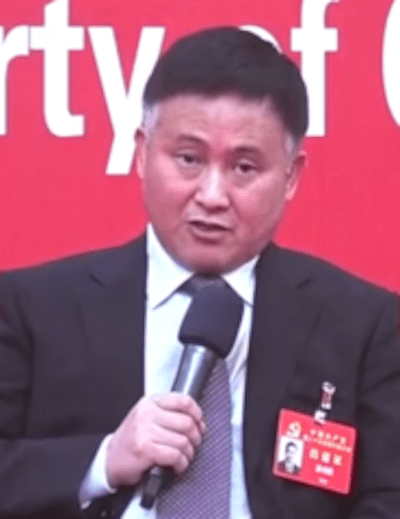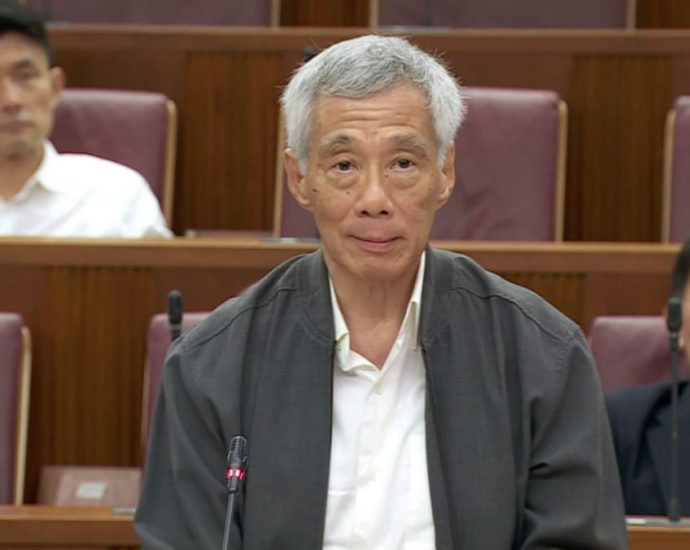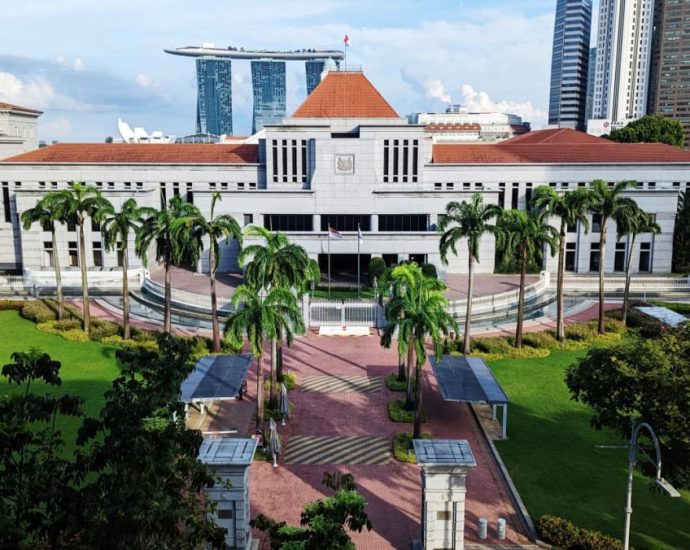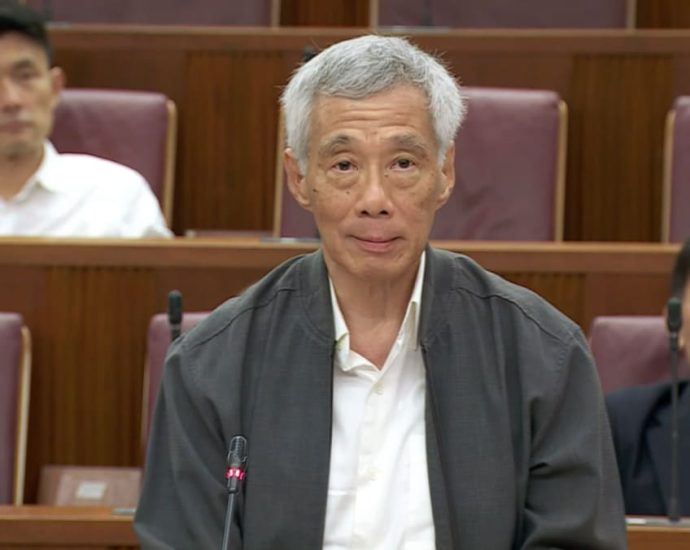As Japan nears inflation target, fiscal policy must be addressed

Japan’s central bank left interest rates unchanged last week despite rising inflation, but suggested that it could gradually discontinue years of ultra-cheap money, sending the yen soaring and stocks tumbling.
The Bank of Japan (BOJ) said it kept unchanged its short-term interest rate at minus-0.1% and maintained its target for the yield on 10-year government bonds at around 0%.
But the central bank of the world’s third-largest economy also noted that it would employ a more flexible stance to controlling the yield on government bonds, which affects borrowing costs, “diluting a key pillar of its long-standing ultra-loose monetary policy,” as an analyst on CNN recently said.
With Japanese inflation now at 4.2%, there are growing calls, perhaps unsurprisingly, for the BoJ to tighten monetary policy much faster.
For instance, the sooner the BoJ moves to a “more normal structure and let bond markets, equity markets do their work that they need to do,” the better it will be for financial markets, Kevin Hebner, global investment strategist at TD Epoch, told CNBC’s Squawk Box Asia on Monday.
However, instead of rushing to increase interest rates, the Bank of Japan should focus on complementing its monetary policy with clearer fiscal plans, as advocated by Prime Minister Fumio Kishida’s government.
Enhancing worker productivity and supporting innovation in the private sector would be instrumental in achieving sustained wage growth, aligning with the 2% target.
However, the current debate in Japan primarily revolves around the government’s inclination to raise defense spending and fund it through methods like the potential sale of shares in telecoms company NTT, which can be seen as mere gimmicks.
If Japan is indeed approaching sustainable inflation levels and is getting closer to achieving its target, it is crucial for the government seriously to consider implementing a fiscal policy that aligns with this economic environment.
While the BoJ governor’s initiatives may have shown promising results, it’s essential now to recognize that the Bank of Japan cannot tackle this challenge singlehandedly.
Collaborative efforts between the government and the central bank are necessary to ensure the success of any economic measures aimed at maintaining stable and on-target inflation.
Nigel Green is founder and CEO of deVere Group. Follow him on Twitter @nigeljgreen.
South Korea raises heat alert to highest amid sweltering weather
SEOUL: South Korea raised the hot weather warning to its highest, the first time in four years, as parts of the country roasted in temperatures over 38 degrees Celsius, the interior and safety ministry said on Wednesday (Aug 2). The scorching heat is estimated to have killed 23 people acrossContinue Reading
Beijing rains heaviest since records began 140 years ago: Weather service
On Tuesday, state broadcaster CCTV said the rains had killed at least 11 people in Beijing, two of whom were workers “killed on duty during rescue and relief” operations. Thirteen people were still missing, but another 14 had been found safe, the broadcaster said. In neighbouring Hebei province, where moreContinue Reading
China denies reports it obstructed G20 climate discussions
Reports that China obstructed discussions on tackling climate change at Group of 20 (G20) meetings last week in India are “completely inconsistent with the facts”, China’s foreign ministry said on Wednesday (Aug 2). After three days of discussions on issues like cutting emissions and fossil fuel use, as well asContinue Reading
Jordanâs cybercrime law further erodes free speech

At first glance, a new cybersecurity law approved by Jordan’s parliament last week appears to be a genuine effort to protect people from online fraud, electronic extortion, and personal data breaches. Amid a sixfold increase in cybercrime between 2013 and 2022, the government says changes are needed to defend against technological advances.
But several articles in the legislation are vague and overly broad, and could be misused to silence and penalize critics, limit already shrinking public freedoms, stifle social media, and undermine access to information.
For starters, the law would make it a crime to criticize government officials on social-media platforms and introduce stringent penalties for doing so.
Article 15 states that intentionally sharing false information is punishable by up to three months in prison and a fine of up to 20,000 dinars (about US$28,000) after parliament’s legal committees slashed it from a proposed 40,000 dinars.
More troubling is a clause that if the alleged crime is directed toward authorities, officials, government institutions or those in public office, public prosecutors can pursue a case without requiring a personal complaint.
Article 17, meanwhile, states that the intentional use of the Internet or social media to publish content that stirs unrest or hatred, or disrespects religions, may lead to imprisonment of up to three years and a fine of up to 20,000 dinars.
Human Rights Watch says the “draconian” bill fails to comply with international law and makes it impossible for social-media users to regulate their conduct accordingly.
Vedant Patel, a top spokesman for the US State Department, recently noted that the law, with its “vague definitions and concepts, could undermine Jordan’s homegrown economic and political reform efforts and further shrink the civic space that journalists, bloggers, and other members of civil society operate in in Jordan.”
The use of ambiguous wording in Jordanian law is not uncommon and is often used as a tactic by authorities to crack down on dissent and muzzle critics. There are already restrictions on freedom of speech in Jordan’s penal code, the press and publication law, and the counterterrorism law. The cybercrime law would add legal teeth to these already restrictive measures.
“Since parliament is weak and the media controlled, social media … became a powerful tool for citizens to express their view and share information,” Yahya Shqair, a media expert in Jordan, told me recently. This latest law is simply another tool with which the government can use to “immunize itself from public scrutiny.”
The cybersecurity legislation is just the latest in a long list of moves to undermine free speech online. In December, the government banned TikTok after truck drivers staged a strike against rising fuel prices. Clubhouse, a social audio app, has been blocked since March 2021. Al Hudood, a satirical news website, was blocked in June.
The cybercrime bill will now go to the Senate for consideration.
Anyone attempting to circumvent the bans with virtual private networks (VPNs) and proxies face fines of up to 25,000 dinars.
While the government focuses on curbing speech, every day people are simply struggling to make ends meet. Nearly half of Jordanian youth are out of work, and the perception of widespread corruption has eroded public trust in the government. Parliament is largely seen as a malleable rubber-stamp entity.
Calls to revoke the cybersecurity bill persist. Free-speech advocates, including lawyers, human-rights activists, journalists, and several members of parliament have called for the bill to be shelved. So far, the government has ignored these pleas.
To be sure, cybercrime is surging in Jordan. Last year, 16,000 cybercrime complaints were reported to authorities, with an additional 8,000 recorded in the first half of this year. In 2015, there were just 2,305 cases. But the increased number of cybercrimes shouldn’t be used as an excuse to restrict freedom of expression.
The controversy surrounding the draft bill has exposed the complexities of striking a balance between safeguarding cyber and national security and protecting free speech and human rights. For now, Jordan’s leaders appear to be prioritizing the former at the cost of the latter.
At a time when Jordan is moving ahead to modernize its political system, the cybersecurity law is counterproductive. Its enactment would have grave implications not only for citizens and businesses, but also for Jordan’s reputation, especially in Western countries, whose aid has helped prop up the country’s ailing economy.
If the bill becomes law, it will be a final nail in the coffin of public freedoms. Jordan must move quickly to revoke the bill.
This article was provided by Syndication Bureau, which holds copyright.
Fed, Fitch thicken plot for Asiaâs economic outlookÂ
TOKYO – Few policymakers in Asia, if any, are more anxious to see the US Federal Reserve halt its tightening cycle than Rhee Chang-yong in Seoul.
Data show that no major financial system in the region is getting whipsawed more by Fed interest rate hikes than South Korea’s. According to Bloomberg, investors who bet on Korean debt over the last year lost 15%, the worst in developing Asia.
This puts Governor Rhee’s team at the Bank of Korea directly on the frontlines of all 11 rate hikes Fed Chairman Jerome Powell executed over the last 17 months. It follows that the BOK is a top beneficiary of the Fed declaring it’s done tightening.
Powell hasn’t formally done that. On July 26, when the Fed raised its benchmark to roughly 5.3% from 5.1%, highest level since 2001, Powell left the door open for another tap of the brakes in September.
For all intents and purposes, though, the Fed’s most aggressive rate cycle since the mid-1990s is done. Already, US consumer prices have fallen to a 3% pace of increase from more than 9% a year ago..
The breathing room that a cessation of Fed austerity creates is stellar news for the Bank of Japan and People’s Bank of China, both under new leadership.
The Fed isn’t the only Washington variable preoccupying Asia. On Tuesday, Fitch Ratings stripped the US of its AAA rating, echoing a 2011 move by Standard & Poor’s. The step comes as the US national debt approaches US$33 trillion and lawmakers in Washington play politics with borrowing policies.
“The rating downgrade of the United States reflects the expected fiscal deterioration over the next three years, a high and growing general government debt burden, and the erosion of governance relative to ‘AA’ and ‘AAA’ rated peers over the last two decades that has manifested in repeated debt limit standoffs and last-minute resolutions,” Fitch says.
These challenges come as the new leaders of the BOJ and PBOC face their own unique challenges at home. One glaring similarity, though, is that both Kazuo Ueda in Tokyo and Pan Gongsheng face the central banking equivalent of a baptism by fire.
Ueda, just 115 days in the BOJ top job, has gotten a serious wake-up call in recent days. On July 28, the BOJ announced that 10-year yields would be allowed to exceed 0.5%.

For most central banks, it would be dismissed as a highly technical tweak to account for a widening spread between US and Japanese rates. Yet for an institution stuck in the quantitative easing matrix for 23 years now, it was nothing short of shocking in market circles.
Ueda’s team spent the last few days cleaning things up. On Monday, as 10-year yields topped 0.6% for the first time in nine years, the BOJ scrambled to buy yen to halt the rise in rates. That day alone, Ueda’s team bought in excess of US$2 billion of government bonds.
By Tuesday, BOJ officials were signaling to local media that the big policy changes aren’t assured. This sets the stage for a tug of war between the BOJ and bond traders.
“The markets are likely to test the BOJ’s resolve, as it probably will seek to engineer a gradual shift away from its [yield curve control] policy over the next year or so, while leaving the short-term rate target unchanged, as it still believes that Japan needs supportive monetary policy,” says economist Duncan Wrigley at Pantheon Macroeconomics.
Yet there’s no doubt that a BOJ’s U-turn is now in motion. That will have far-ranging implications far and wide, says economist Mathias Dollerup Sproegel at Sydbank A/S in Copenhagen.
Though Tokyo’s policy shift seems “a matter of fine-tuning” it can have “a major impact on Danish homeowners with fixed-rate loans,” he says. If the BOJ “continues to tighten monetary policy and thus allows higher and higher interest rates in Japan, this may mean that it will become more expensive to buy a home in Denmark.”
Yet the Fed wrapping up its tightening cycle buys some time for Ueda’s team in Tokyo. For one thing, the BOJ can look forward to fewer strains in local credit markets. Each Fed rate hike forces the BOJ to regulate liquidity flows accordingly. The wider the US-Japan yield gap, the more work the BOJ must do to address market dislocations.
Though few expect actual BOJ rate hikes anytime soon, less rate turbulence from the US gives Ueda space to figure out how to normalize Japanese rates. Devising a plan to withdraw from a government bond market in which the BOJ owns more than half of all outstanding issues won’t be easy.
The same goes for the stock market. During the decade Ueda’s predecessor spent running the BOJ, Haruhiko Kuroda grew its balance to the point where it topped the size of Japan’s US$5 trillion economy. During that time, the BOJ became the biggest holder of Japanese stocks via exchange traded funds.
That multi-year buying binge made the BOJ the largest holder of Japanese shares — even bigger than Japan’s US$1.4 trillion Government Pension Investment Fund, the largest such entity in the world. It also makes it hard for the BOJ to withdraw without cratering the equity market.
In recent months, the Nikkei Stock Average surged to 30-year highs. The BOJ will be loath to pull the rug out from under a rally in which Warren Buffett has played a headline-grabbing role. This unwinding process may have a greater chance of success if global debt markets are calm.

In Beijing, Pan’s first week on the job proved supremely hectic. Pan assumed the role of PBOC governor on July 25, three days before Ueda’s big splash in global financial circles.
Tumbling home sales are adding to already extreme pressures on developers grappling with a multi-year credit crisis. News that Country Garden, a top Chinese private-sector developer, scrapped a US$300 million stock offering added to the sense of gloom hovering over the economy.
Right out of the gate, Pan confronts a worsening slowdown, an economy on the verge of deflation, a property sector in crisis, record youth unemployment and capital leaving the second-biggest economy.
This week also brought fresh reminders that manufacturing is sputtering. Activity contracted for a fourth consecutive month in July, a dynamic that makes reaching this year’s 5% growth target less and less likely. The Caixin/S&P purchasing managers index fell to 49.2 in July from 50.5 the previous month.
“Looking forward, policy support is needed to prevent China’s economy from slipping into recession, not least because external headwinds look set to persist for a while longer,” says economist Julian Evans-Pritchard at Capital Economics.
Recent data, says economist Xu Tianchen at the Economist Intelligence Unit, point to a “potential death spiral” in the real estate sector that spreads more widely around the economy.
Economist Katrina Ell at Moody’s Analytics notes that “forward indicators, including new export orders, suggest ongoing near-term weakness. Goods demand will remain soft from the US and Europe through the remainder of 2023.”
Thomas Gatley, economist at Gavekal Dragonomics, notes that there are probably two main reasons China’s manufacturers ended up holding more inventory than normal. “First,” he says, “they were concerned about disruptions in their supply chains, and wanted to hold more raw materials in case deliveries of those key inputs were halted or delayed. Second, they anticipated higher levels of consumer demand than actually materialized, which caused finished goods to pile up in warehouses.”
Explanation No. 1, Gatley says, looks most relevant to the machinery and electronics sectors, where many products are produced by complex global supply chains that were particularly vulnerable to the disruptions in global shipping which occurred during the pandemic. Inventories of raw materials held by the machinery and electronics sectors rose from around 1.15 months of sales before the pandemic to a peak of nearly 1.3 months of sales in 2022.
At the same time, China’s service sector also faced intensifying headwinds. In July, activity in the non-manufacturing sector fell to 51.5 from 53.2. Economist Robert Carnell at ING Bank notes that while mainland authorities have been vocal in their support for the economy, “so far, that has not translated into the sort of sizable fiscal policy stimulus many in the market have become used to expecting. We don’t think it’s coming.”
Carnell says that the one component that stands out from the rest, is expectations, which looks like an unrealistic outlier compared with what is going on elsewhere.
“We can only put this down to continued hope that the government will pull something out of the bag that will re-invigorate the economy,” Carnell says. “However, while we believe that a great many micro measures will be implemented to improve the functioning of the economy, including a reduction in constraints on the private sector, we aren’t at all convinced that there is a fiscal bazooka waiting to fire up the economy. So, if those expectations aren’t fulfilled and begin to wilt, then this PMI could well join the manufacturing sector in contraction.”
As China slows and Japan underperforms, officials in Beijing and Tokyo are hopeful for a quieter second half of 2023 from the external sector.
Clearly, the Fitch news throws a new wrinkle into the mix. US Treasury Secretary Janet Yellen called the downgrade “arbitrary” and “outdated.” But for officials in Japan and China, which hold the world’s largest stockpiles of US Treasury securities, the downgrade is a stark wake-up call. Tokyo is sitting on US$1.1 trillion of Treasuries, while China is stuck with more than US$870 million.
Amid extreme uncertainty, this much is true: Doubts about the dollar’s trajectory, and peak Fed rates, are a game changer in global markets, adding to the reasons for Asia investors to fasten their seatbelts.
Highlights: PM Lee, parliament discuss Iswaran probe, resignation of PAP MPs over affair

<!–/*–><![CDATA[/* ><!–*/
#block-plasterarticleadsoverflowfix {
display: none;
} .block-ad-displayside01-display .ad-entity-container .advertisement__container .celtra-ad-inline-host .celtra-banner {
overflow: unset !important;
} .block-ad-displayside01-display .ad-entity-container .advertisement__container .celtra-ad-inline-host .celtra-banner iframe {
margin-top: 0;
} /*–><!]]>*/
Watch live: PM Lee’s ministerial statement on Iswaran probe, resignation of PAP MPs over affair
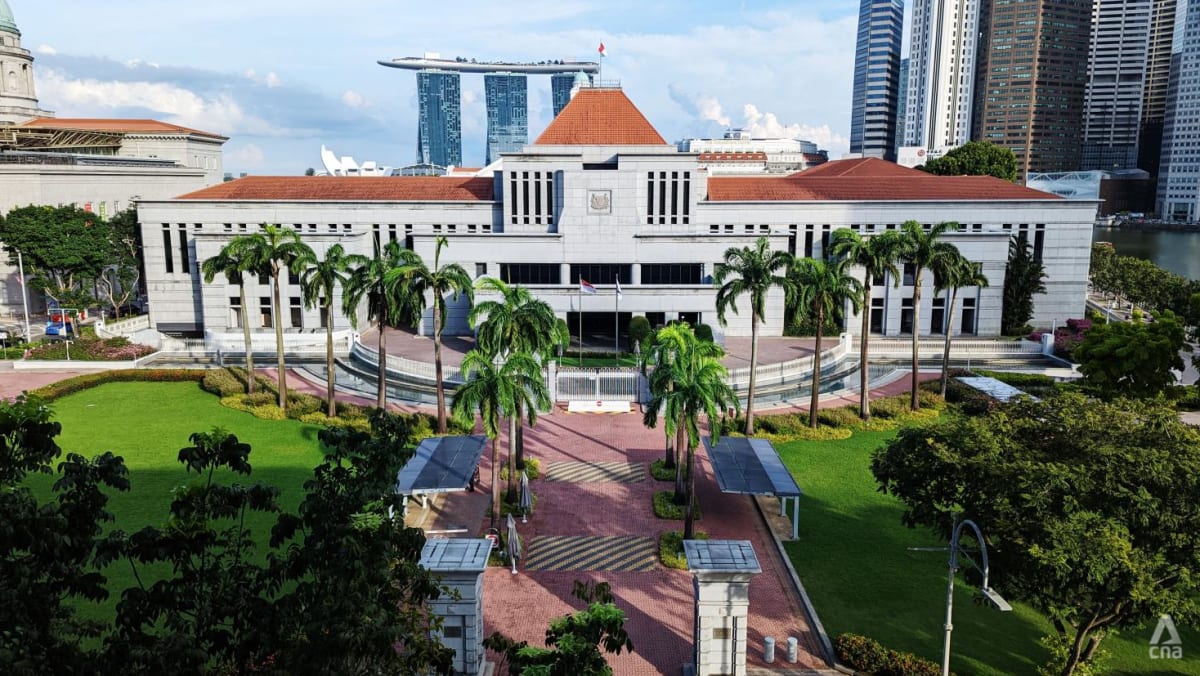
<!–/*–><![CDATA[/* ><!–*/
#block-plasterarticleadsoverflowfix {
display: none;
} .block-ad-displayside01-display .ad-entity-container .advertisement__container .celtra-ad-inline-host .celtra-banner {
overflow: unset !important;
} .block-ad-displayside01-display .ad-entity-container .advertisement__container .celtra-ad-inline-host .celtra-banner iframe {
margin-top: 0;
} /*–><!]]>*/
Watch live: PM Lee, parliament discuss Iswaran probe, resignation of PAP MPs over affair

<!–/*–><![CDATA[/* ><!–*/
#block-plasterarticleadsoverflowfix {
display: none;
} .block-ad-displayside01-display .ad-entity-container .advertisement__container .celtra-ad-inline-host .celtra-banner {
overflow: unset !important;
} .block-ad-displayside01-display .ad-entity-container .advertisement__container .celtra-ad-inline-host .celtra-banner iframe {
margin-top: 0;
} /*–><!]]>*/
Lorries make up 4% of traffic accident injuries; efforts to improve safety for road users remain ‘evidence-based’: Govt
“The government recognises that it is not ideal for workers to be transported on lorries, but we also understand the genuine concerns from employers,” said the joint response. According to the statement, employers and industry associations had shared their concerns that if the government imposes a ban, many companies willContinue Reading






